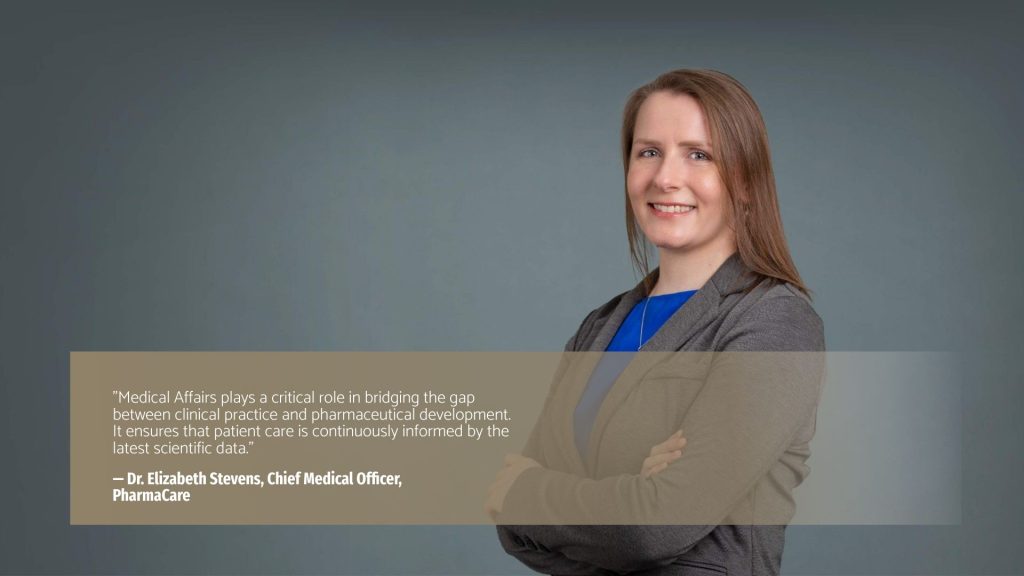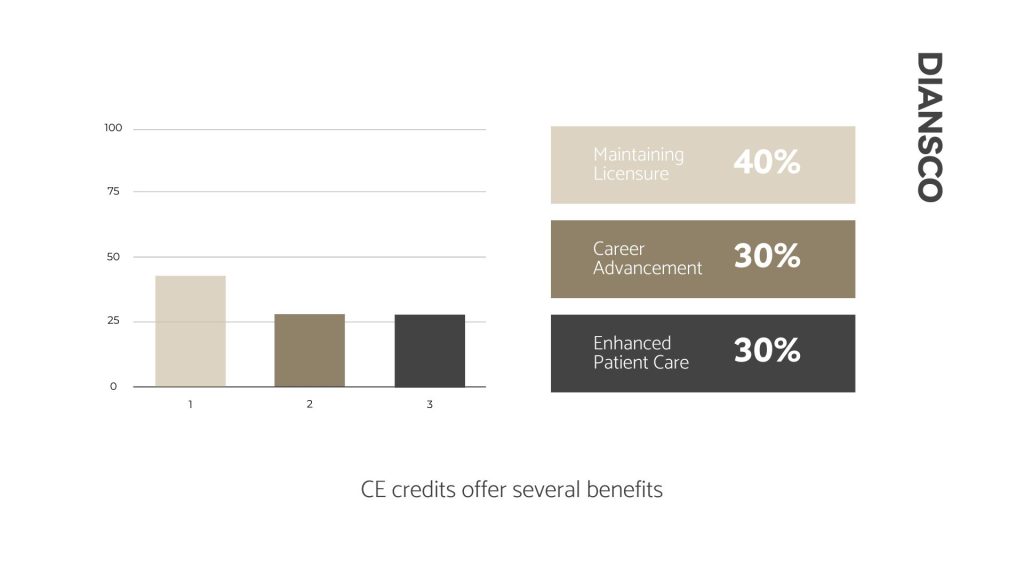In the rapidly evolving healthcare industry, medical professionals are constantly learning and adapting to new research, treatments, and regulations. Continuing Education (CE) credits help healthcare professionals stay current in their fields, ensuring they maintain their licenses and meet the industry’s ever-changing standards. One question that often arises is whether Medical Affairs departments produce the materials needed to earn these CE credits.
This article will explore Does Medical Affairs Produce Continuing Education Credits Material and The role of Medical Affairs in creating CE content, how accreditation works, and the importance of CE credits for healthcare professionals.
Role of Medical Affairs in Continuing Education
Medical Affairs is a critical department within pharmaceutical companies, healthcare organizations, and medical institutions. Its primary function is to bridge the gap between clinical research, regulatory requirements, and healthcare providers. Medical Affairs professionals—such as medical science liaisons (MSLs), physicians, and scientific experts—play a key role in disseminating medical knowledge, supporting product launches, and providing scientific education.
One of the key roles of Medical Affairs is to support the education of healthcare providers (HCPs) by developing high-quality, evidence-based materials. These materials range from clinical guidelines and disease management resources to educational presentations. However, the question remains: does Medical Affairs directly produce the materials necessary for healthcare professionals to earn CE credits?

CE – Does Medical Affairs Produce Continuing Education Credits Material?
While Medical Affairs plays a significant role in producing educational content, not all of the materials they create qualify for CE credits. In some cases, Medical Affairs collaborates with external organizations and accredited institutions to ensure the content they develop meets the standards required for CE credits.
Types of Educational Content Produced
Medical Affairs departments are heavily involved in producing educational materials that inform HCPs about disease areas, treatment protocols, and the latest research. These materials include:
- Webinars and workshops: Often, Medical Affairs hosts or participates in educational events where experts present scientific data to healthcare providers.
- Medical publications: They help publish papers and clinical trial results that physicians and researchers use to update their knowledge.
- Scientific presentations: These materials are presented at conferences and seminars to highlight recent developments in treatment and research.
Although Medical Affairs is integral in providing such information, the actual accreditation of these materials to qualify for CE credits depends on various factors.
Process of Accreditation
CE credits are awarded through an accrediting body that assesses the quality and educational value of the content. These accrediting organizations ensure that materials adhere to strict guidelines that promote learning and competency in the healthcare field.
How Accreditation Works
To earn CE credits, content must meet standards set by organizations like the Accreditation Council for Continuing Medical Education (ACCME) or similar accrediting bodies. These standards ensure that the materials provide measurable educational benefits to healthcare providers.
Lets explore more – Does Medical Affairs Produce Continuing Education Credits Material?
Medical Affairs departments may contribute to the development of educational materials, but they usually do so in collaboration with accredited institutions. Medical societies, universities, and continuing education providers are the ones responsible for submitting the content for review and certification.

Medical Affairs and CE-Credit Programs
In certain cases, Medical Affairs professionals work closely with these accredited bodies to design and deliver programs that qualify for CE credits. This collaboration may involve:
- Content Creation: Medical Affairs teams develop the core scientific and medical content that is later adapted to meet CE accreditation requirements.
- Collaboration with Accredited Bodies: They partner with universities, medical associations, and professional CE providers who handle the process of accreditation.
- Compliance with Guidelines: Medical Affairs ensures that any educational content they produce adheres to the ethical standards and compliance regulations of the healthcare industry. This includes avoiding commercial bias and ensuring that educational material is evidence-based.
By adhering to these standards, Medical Affairs can support the creation of accredited CE content, which healthcare professionals can use to maintain their licenses.
Compliance and Regulations
One of the primary considerations when developing CE materials is regulatory compliance. Educational content designed for CE credits must comply with regulations to ensure it remains independent, scientifically valid, and free of promotional influence.
For Medical Affairs teams, ensuring compliance involves following strict guidelines from regulatory bodies like the FDA and the ACCME. This includes:
- Transparency: Disclosing any potential conflicts of interest.
- Evidence-based content: Ensuring that all materials are based on scientific research and clinical evidence.
- Neutrality: Avoiding any commercial bias or promotional language, especially when discussing specific products or treatments.
Medical Affairs departments are responsible for ensuring that any educational material they produce aligns with these requirements, particularly when the goal is to create CE-eligible content. here is details of Does Medical Affairs Produce Continuing Education Credits Material?

Benefits for Healthcare Professionals
The importance of CE credits cannot be overstated. For healthcare professionals, staying up-to-date with the latest medical advancements and clinical practices is crucial for maintaining licensure and delivering high-quality patient care.
Does Medical Affairs Produce Continuing Education Credits Material? CE credits offer several benefits:
- Maintaining Licensure: Many healthcare providers are required to earn a certain number of CE credits annually to maintain their professional licenses.
- Career Advancement: Continuing education helps HCPs improve their skills, stay current on emerging treatments, and advance in their careers.
- Enhanced Patient Care: By staying informed on the latest research and clinical guidelines, healthcare professionals can provide better, evidence-based care to their patients.
Medical Affairs departments play a crucial role in supporting this process by producing reliable and up-to-date educational materials. While they may not always directly develop CE-accredited programs, their contributions to medical education are invaluable in ensuring that healthcare professionals receive the information they need to earn CE credits and excel in their careers.
Challenges and Limitations
While Medical Affairs can contribute significantly to medical education, producing CE-accredited material comes with its challenges.
1. Compliance with Accreditation Standards
Medical Affairs departments must ensure that their educational content meets the high standards set by accrediting bodies. This often requires collaboration with accredited organizations to ensure the materials are free from bias and provide genuine educational value.
2. Avoiding Commercial Bias
One challenge for Medical Affairs is creating educational content that does not promote any specific products or services. This can be particularly challenging for departments that are part of pharmaceutical companies. CE-accredited materials must remain impartial and based on science, not marketing.
3. Cost and Resources
Developing accredited CE programs can be resource-intensive. Medical Affairs departments often need to collaborate with external organizations, and the process of getting accreditation can involve a significant investment of time and money.
Last Part of Does Medical Affairs Produce Continuing Education Credits Material?
Conclusion
Medical Affairs plays a vital role in developing and supporting educational content for healthcare professionals. While they may not always directly produce materials that are CE-accredited, they contribute significantly to the creation and dissemination of high-quality, evidence-based information that healthcare providers rely on for continuing education.
By working closely with accredited institutions and ensuring compliance with regulatory guidelines, Medical Affairs helps to produce content that meets the stringent requirements needed to award CE credits. This collaboration ensures that healthcare professionals have access to the information they need to stay informed, maintain their licensure, and ultimately provide the best possible care to their patients.
FAQs
1. What is Medical Affairs?
Medical Affairs is a department within healthcare or pharmaceutical organizations that bridges the gap between clinical research, regulatory affairs, and healthcare providers.
2. Can Medical Affairs create CE-accredited programs?
While Medical Affairs often contributes to educational content, accredited institutions usually handle the actual process of certifying the materials for CE credits.
3. Why are CE credits important for healthcare professionals?
CE credits are required for maintaining professional licensure and staying updated with the latest advancements in medical research and clinical practices.
4. Does Medical Affairs Produce Continuing Education Credits Material?
Medical Affairs teams produce a wide range of educational content, including webinars, clinical guidelines, and scientific presentations, often in collaboration with accredited CE providers.
5. How does Medical Affairs ensure compliance with CE standards?
Medical Affairs ensures compliance by following regulatory guidelines, avoiding commercial bias, and collaborating with accredited institutions to produce scientifically valid content.


